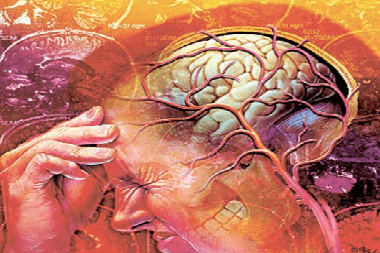Medicine questions >>>> Vascular neurosis
Vascular neurosis.

Disorders of higher nervous activity, the generator of which is the brain, can lead to disturbances in the regulatory functions of the work of internal organs and their systems, which will be reflected in diseases called "neuroses".
Violation of the regulatory functions of the vascular system, associated with pathology in the processes of excitation and inhibition of the autonomic nervous system, which regulates the activity of the endocrine glands, lymphatic and circulatory systems, is called "vascular neurosis".
Vascular neurosis often develops against the background of overwork, prolonged stress, chronic infections, abuse of bad habits, poor nutrition, dysfunction of the endocrine glands (adrenal glands, thyroid gland, pancreas), dysfunction of the gonads.
Signs of vascular neurosis are manifested:
- in general ailments and chronic headaches,
- dizzy,
- in vascular spasms,
- in an increase in the heartbeat for no apparent reason,
- in pain in the area of the heart muscle,
- in bouts of sweating,
- in rushes of blood to the face,
- in the coldness of the limbs,
- in mood swings towards excitement.
Treatment of vascular neurosis is aimed at improving the quality of life, revising the diet towards low-calorie foods, but rich in vitamins and microelements. Vascular neurosis in itself is not a life-threatening disorder, but it is capable of introducing an imbalance in the vital functions of the body. For this reason, people suffering from this kind of ailment are shown:
- avoidance of stressful situations,
- observance of the regime of work and rest,
- long walks in the fresh air,
- moderate exercise,
- full sleep,
- spa treatments and swimming,
- rejection of bad habits,
- frequent changes in the environment, creating opportunities for the rest of the nervous system.

Read

Read



























